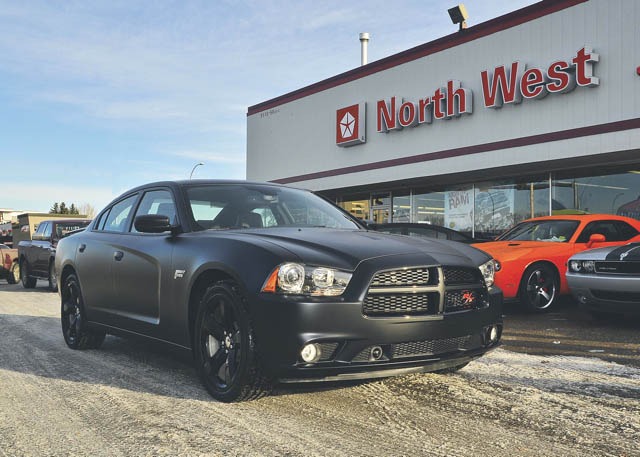Search the Community
Showing results for tags 'Workshop'.
-
The current laws and regulations concerning how vehicles are sold are, to put it mildly, a complete mess thanks to states having different versions. Experts can't seem to agree whether the current rules are good or bad. One thing that they can agree on is buying a vehicle is an unpleasant experience due to the current regulations. The Federal Trade Commission held a workshop yesterday as a possible first step to unravel the mess. The big topic that was covered was in the workshop was direct sales with a variety of people on either side of the argument to make their case. For Direct Sales: Tesla Motors is leading the charge for doing direct sales to consumers. Todd Maron, Tesla Motor's lawyer argued the traditional model doesn't work for the company as their electric vehicles compete with gas vehicles and dealers would likely not push electric vehicles since they are dependent on sales of gas vehicles. Maron went on to say Tesla doesn't offer “insurance products and add-ons” or require regular service work. But the key point Maron said Tesla needs a different store design and location. “Our stores are small and in high foot-traffic areas such as shopping malls. When new technology comes out, consumers don’t go to it. You need to bring the technology to consumers,” said Maron. Fiona Scott Morton, a professor at Yale University said the FTC should allow "vertical integration" (another way of saying direct sales from automakers) to improve the buying experience. For the Franchise System: Those standing up for the current system of franchised dealers say intrabrand competition gives consumers a fair price on a vehicle. Automotive analyst Maryann Keller said the direct sales model doesn't offer any savings to consumers. Peter Welch, the president of the National Automobile Dealers Association said dealership laws help American consumers and only a few states have banned direct sales. “Empirical research has demonstrated that intense competition among franchised dealers lowers new-car prices by hundreds of dollars. But the benefits to consumers don’t end there -- they extend to service, warranty work, recalls, and the hundreds of millions of dollars that’s invested in local communities,” Welch went on to say. “Independent dealers add an extra layer of credibility in the auto industry. Imagine how much more difficult the General Motors and Chrysler bankruptcies would have been to resolve had the manufacturers had to bear the high costs of the distribution system, too,” said Paul Norman, a partner at Boardman & Clark law firm. What Happens Next? For the time being, the FTC is taking public comment on direct sales and franchise system till March 4th. After that, we might have an idea of what will happen next. Source: Automotive News (Subscription Required), Autoblog, FTC Comment Form View full article
- 2 replies
-
- Direct Sales
- Federal Trade Commision
-
(and 3 more)
Tagged with:
-
The current laws and regulations concerning how vehicles are sold are, to put it mildly, a complete mess thanks to states having different versions. Experts can't seem to agree whether the current rules are good or bad. One thing that they can agree on is buying a vehicle is an unpleasant experience due to the current regulations. The Federal Trade Commission held a workshop yesterday as a possible first step to unravel the mess. The big topic that was covered was in the workshop was direct sales with a variety of people on either side of the argument to make their case. For Direct Sales: Tesla Motors is leading the charge for doing direct sales to consumers. Todd Maron, Tesla Motor's lawyer argued the traditional model doesn't work for the company as their electric vehicles compete with gas vehicles and dealers would likely not push electric vehicles since they are dependent on sales of gas vehicles. Maron went on to say Tesla doesn't offer “insurance products and add-ons” or require regular service work. But the key point Maron said Tesla needs a different store design and location. “Our stores are small and in high foot-traffic areas such as shopping malls. When new technology comes out, consumers don’t go to it. You need to bring the technology to consumers,” said Maron. Fiona Scott Morton, a professor at Yale University said the FTC should allow "vertical integration" (another way of saying direct sales from automakers) to improve the buying experience. For the Franchise System: Those standing up for the current system of franchised dealers say intrabrand competition gives consumers a fair price on a vehicle. Automotive analyst Maryann Keller said the direct sales model doesn't offer any savings to consumers. Peter Welch, the president of the National Automobile Dealers Association said dealership laws help American consumers and only a few states have banned direct sales. “Empirical research has demonstrated that intense competition among franchised dealers lowers new-car prices by hundreds of dollars. But the benefits to consumers don’t end there -- they extend to service, warranty work, recalls, and the hundreds of millions of dollars that’s invested in local communities,” Welch went on to say. “Independent dealers add an extra layer of credibility in the auto industry. Imagine how much more difficult the General Motors and Chrysler bankruptcies would have been to resolve had the manufacturers had to bear the high costs of the distribution system, too,” said Paul Norman, a partner at Boardman & Clark law firm. What Happens Next? For the time being, the FTC is taking public comment on direct sales and franchise system till March 4th. After that, we might have an idea of what will happen next. Source: Automotive News (Subscription Required), Autoblog, FTC Comment Form
- 2 comments
-
- Direct Sales
- Federal Trade Commision
-
(and 3 more)
Tagged with:


